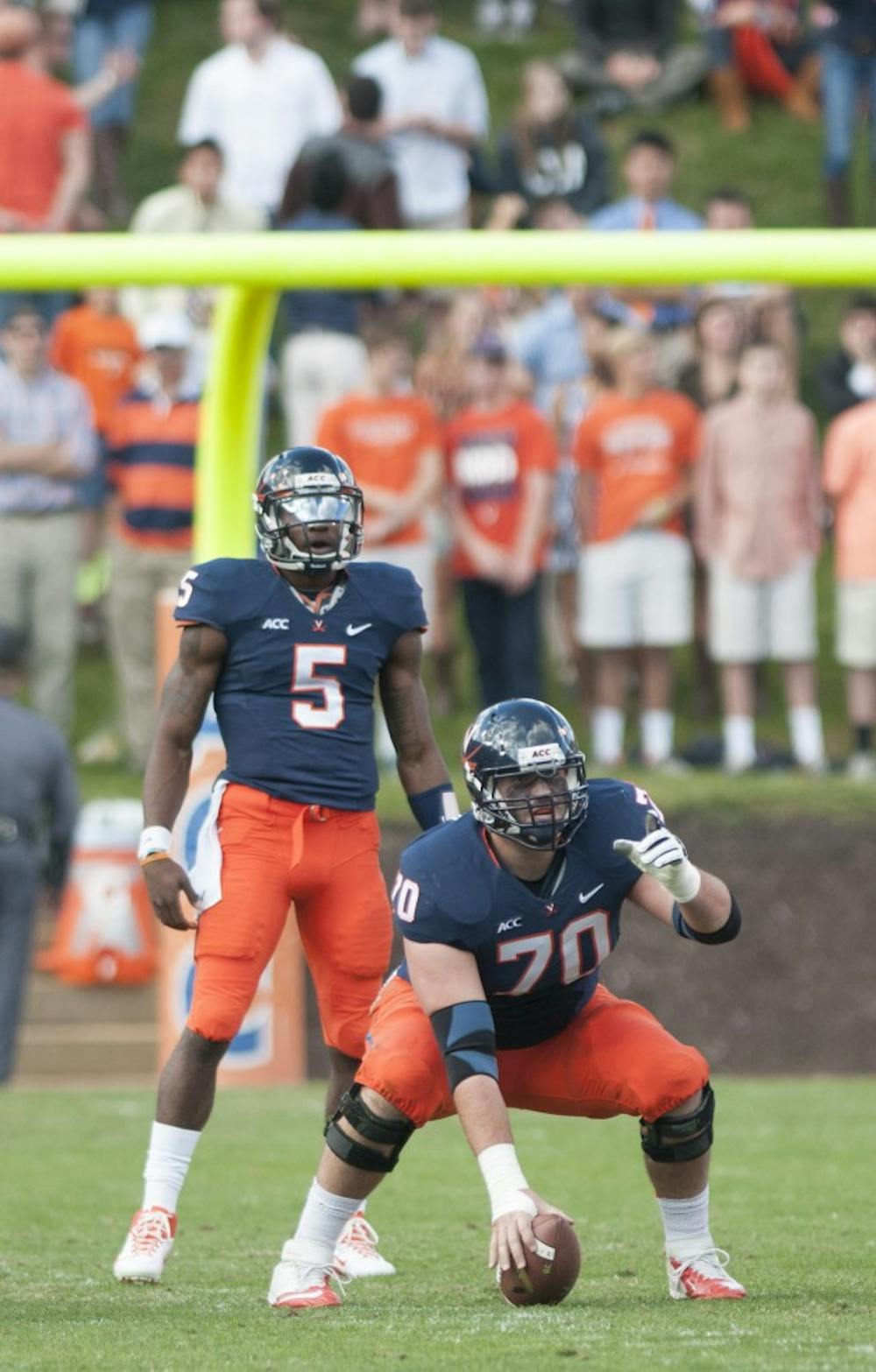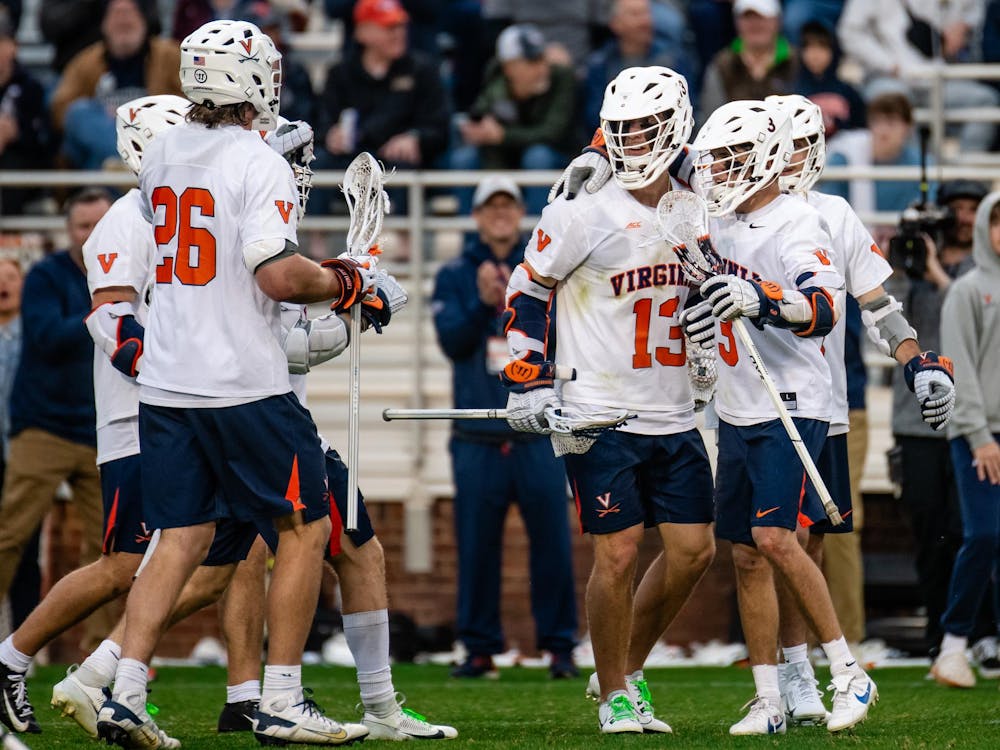Two years ago, I remember making the trip back to Charlottesville for the Virginia Tech-Virginia game. Still a wide-eyed first-year, I was unaware of how spoiled I was as a Cavalier fan during the 2011 season. With a trip to the ACC Championship on the line, Virginia was humiliated 38-0 at Scott Stadium.
Virginia was not playing for a conference championship berth this time around. The Cavaliers did not even have a chance to keep its archrival from bowl eligibility, as it did in 2012 before losing 17-14 in Blacksburg.
No, this game — normally the biggest game of the year for many Cavalier fans — was only for pride. Apparently, coach Mike London had decided to turn his attention to next season rather than take his best shot at a hated rival.
Earlier in the week, London announced that redshirt freshman quarterback Greyson Lambert would play against the Hokies, in addition to usual starter David Watford, though he was evasive about when and how often Lambert would see the field.
It’s understandable that London wanted Lambert to get a few final reps before spring practice. Watford has not been the quarterback his coaches expected him to be, while Lambert — who had played in six games — compiled two impressive performances in his last two appearances, finishing 13-of-19 for 134 yards last week at Miami and 8-of-13 for 75 yards and a touchdown against North Carolina.
But Lambert entered those games after they were already well out of reach — down 38-20 with 7:21 left to play against the Hurricanes and 42-7 in the fourth quarter against the Tar Heels. Clearly London did not believe Lambert was the team’s best option to win those games, but rather that those appearances were learning opportunities for the coach’s potential quarterback of the future.
Naturally then, when Lambert entered the game at the end of the third quarter, it sent the message that the game was over. Though the Cavaliers’ hopes technically ended when Lambert was sacked on fourth-and-25 with less than a minute to play, London effectively threw in the towel when he sat Watford for the remainder of the game, down just 16-6.
I was highly critical of Virginia’s two-quarterback platoon throughout the last two seasons, and despite finishing winless in the ACC and with just two wins overall, I am still thankful the team largely made it through the season without a weekly quarterback controversy. Saturday, however, was the wrong time to throw Lambert into the fire.
Lambert led five drives, four of which were less than 10 yards or negative. His best drive, which amassed 45 yards, came courtesy of a 48-yard run by Kevin Parks, which was quickly negated on the ensuing play by a Lambert interception.
He was simply not ready to shoulder the burden of leading a late 10-point comeback against — and it pains me to say this — one of the best defenses in the ACC. Watford may not have been lighting up Virginia Tech’s defense, but he had much more experience against comparable competition and was better suited to handle the pressure of the game’s final minutes.
Had London rotated Lambert into the game earlier, the move may have appeared as an attempt to catch Virginia Tech off-guard. Had the Hokies scored another touchdown in the fourth quarter to go up by 17, playing Lambert would have been understandable. Given Watford’s recent mediocre play, London could have even considered starting Lambert to allow him to get his bearings early in the game.
But sitting your starting quarterback with more than a quarter to play in such a closely contested game is even worse than London’s decision to go for it on fourth-and-11 in the second quarter or his reluctance to call a timeout at the end of last year’s Commonwealth Cup. It is almost unfathomable that he could expect a redshirt freshman to come off the bench cold and change the entire course of the game. In the final opportunity of an otherwise wasted season, London was already thinking about next year.
“We have to address the things that cause us to lose games,” London said. “Players need to understand their position isn’t guaranteed next year. Coaches need to look at systems and schemes. We need to hold our head up and look straight ahead and forward.”
Looking straight ahead, the team must face a grim prospect: 2014 could be worse than 2013. Heading into spring practice, there will be coaches on the hot seat again, likely another quarterback duel — at least without Phillip Sims this time — and an offensive line and defensive unit seeking new contributors after the graduation of key leaders.
With only eight seniors on the roster — the second fewest in the nation — Virginia will return a wealth of young talent. Yet seven of those departing seniors were starters. The departures of Luke Bowanko and Morgan Moses on the offensive line and their defensive counterparts Jake Snyder and Brent Urban will leave large voids to fill on both sides of the ball. Tim Smith, the team’s primary deep threat, has played his final down as a Cavalier, as have captain Rijo Walker and starting fullback and team cut-up Billy Skrobacz.
So although it has been apparent for some time now that the season was beyond saving, the fans and the team deserved better than what they saw Saturday. London picked a baffling time to look towards the future and send in his backup quarterback, and the debate over his decision-making and the team’s prospects going forward will rage on in the coming months. After yet another disappointing Virginia football season, the broken record played on.
“We want to take this season and remember how bad we all felt,” Watford said. “We do not want this to happen again. We need to get better and go up and beyond what we have been doing. We need to push each other and have each other’s back. We need to remember why we are here.”







